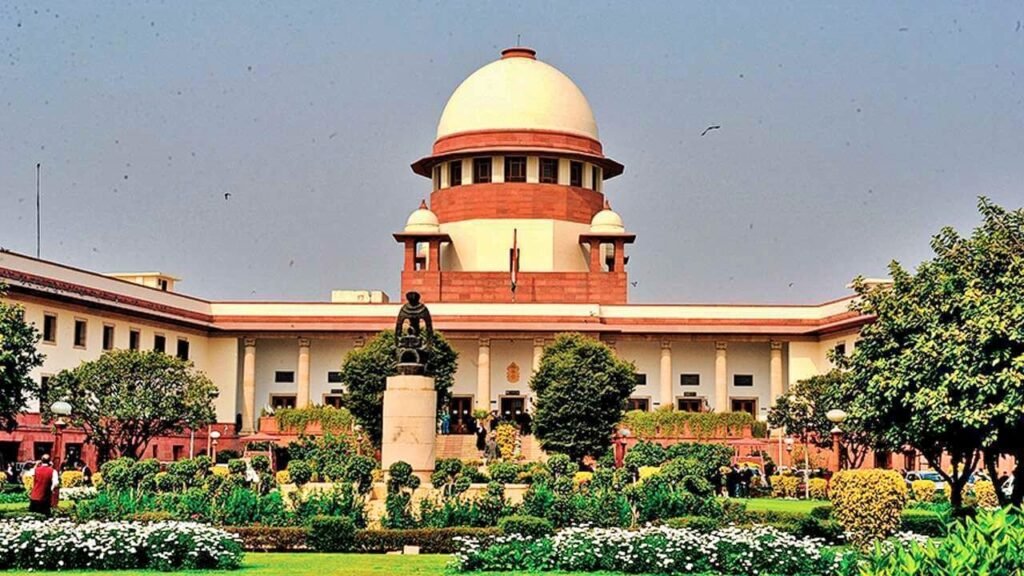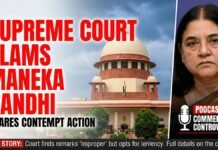
New Delhi: In a landmark judgment that has divided the nation, the Supreme Court on Tuesday refused to recognize gay marriage as a legal right. The five-judge constitutional bench, headed by Chief Justice DY Chandrachud, delivered four separate opinions on the issue, with only two judges supporting the right of same-sex couples to marry.
The bench was hearing a batch of petitions filed by gay people, who sought legal recognition and protection for their relationships. The petitions challenged the validity of the Special Marriage Act, of 1954, which does not allow marriage between persons of the same sex.
Two judges in favor of gay marriage
Chief Justice Chandrachud, in his 300-page judgment, held that gay people have the right to marry and adopt children under Article 21 of the Constitution, which guarantees the right to life and personal liberty. He said that homosexual relationships are not a phenomenon of the elite or urban class, but a natural expression of human sexuality. He said that the institution of marriage is not static, but dynamic and evolving. He cited various historical and social changes that have taken place in the concept of marriage, such as the abolition of Sati, the legalization of widow remarriage, and inter-caste marriage.
However, he also said that the right to give legal recognition to marriage is the domain of Parliament, which makes the law. The court can only interpret the law and protect the rights of the citizens. He cautioned that the court should be careful while interfering in the authority of the legislature and respect its wisdom. Justice SK Kaul concurred with Chief Justice Chandrachud and wrote a separate but similar judgment.
Three judges against gay marriage
Justice S Ravindra Bhatt, in his 250-page judgment, disagreed with Chief Justice Chandrachud and said that marriage can only be defined by law and not by judicial interpretation. He said that the present case is not such that the Supreme Court should intervene to grant legal recognition to gay marriage. He referred to previous judgments of the court on gay rights, such as Naz Foundation v. Government of NCT of Delhi (2009) and Navtej Singh Johar v. Union of India (2018), where the court had decriminalized homosexuality and struck down Section 377 of the Indian Penal Code, which punished consensual sexual acts between adults of the same sex. He said that in those cases, the court had intervened to protect gay people from violence or discrimination, which is the duty of the government under any civil right. But this is not the case with marriage, which is a social institution and not a fundamental right. He said that gay people have the right to choose their partner, but they cannot compel the government to give legal recognition to their unions. Justice Hima Kohli agreed with Justice Ravindra Bhatt and wrote a brief concurring judgment.
Justice PS Narasimha, in his 200-page judgment, also opposed gay marriage and said that it is contrary to Indian culture and values. He said that the right to marriage arises from culture and tradition, and not from constitutional principles. He said that converting the right to live together into the right to marry is not constitutionally permissible. He said that marriage is a sacred bond between a man and a woman, which has religious and social significance.
The government asked to form a committee
However, all the judges of the bench agreed that the Government of India should form a committee to decide the rights and needs of gay people even without recognizing their living together as marriage. They said that such a committee should consist of experts from various fields, such as law, sociology, psychology, medicine, etc., and should consult various stakeholders, such as gay people, religious groups, civil society organizations, etc., before making any recommendations. They said that such a committee should be formed within six months and should submit its report within one year.

The bench also directed the government to ensure that gay people are not subjected to any harassment or discrimination on account of their sexual orientation or relationship status. They said that gay people are entitled to dignity and respect as human beings and citizens of India.
The judgment has sparked mixed reactions from various quarters. While some have welcomed it as a step towards equality and justice for gay people, others have criticized it as an infringement on their religious and cultural rights. The petitioners have expressed disappointment with the verdict and said that they will explore legal options to challenge it further.
















































